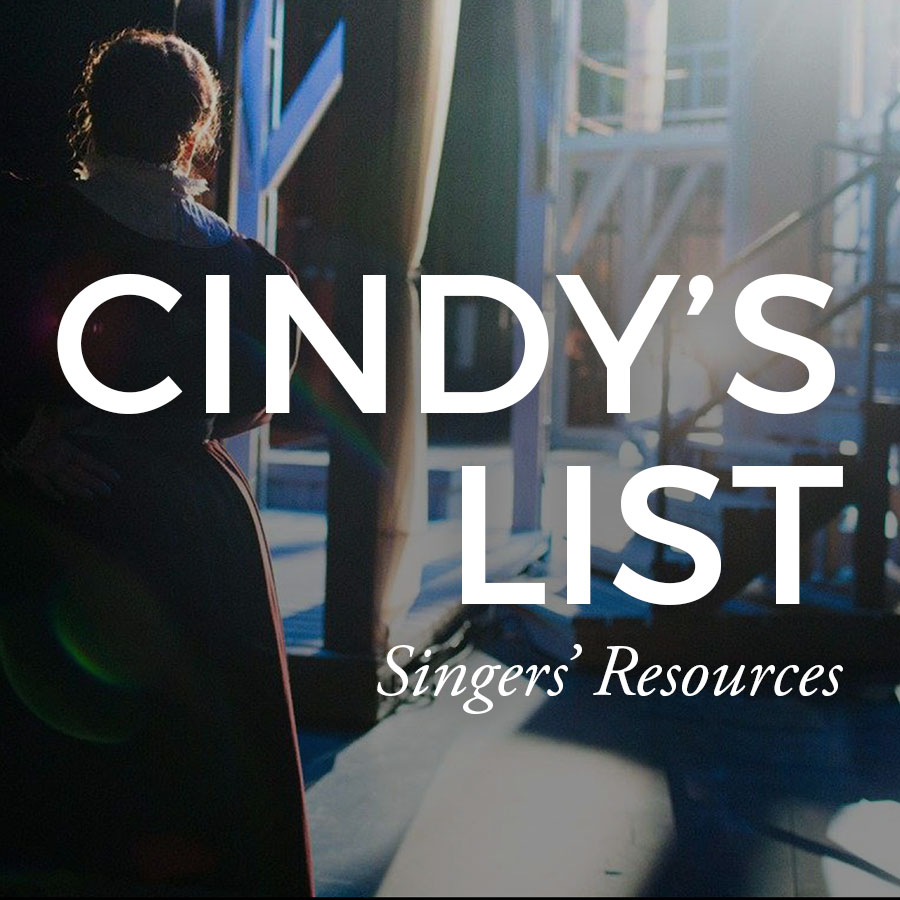It’s still going on.
Two of my brave and brilliant colleagues, Kathy Kelly and a friend who prefers not to receive a boost via this blog, have recently come forward with heart-wrenching accounts of the abuse, harassment, and assault they have suffered over the years. Read Kathy’s article here.
Just a few days before their articles were published, a former student contacted me for help. Students were being berated, assaulted, and harassed at their summer program, and instead of supporting them, the administration was hostile.
Over and over again, we see the most vulnerable among us being abused by those in positions of power. No institution can be assumed to be clean of it. I’ve used my voice and connections to collect confidential stories from dozens of our colleagues for articles in Classical Singer Magazine and for a report to AGMA on behalf of a loosely organized group of American opera soloists hoping for a stronger policy and some kind of confidential reporting system --- which they did manifest.
Since that time, the #MeToo movement has picked up considerable steam and influence. The Met investigated and fired James Levine. We’ve seen long-respected conductors, directors, and others fall. More and more people in the classical music and related industries are speaking out about their experiences.
I believe it’s time to take a look at all of the entertainment industry’s labor unions responses to this movement over the last eight months.
SAG-AFTRA, the union for film, television and radio actors, has worked tirelessly to change the culture of their workplace, through their “Four Pillars of Change Initiative” which includes a Code of Conduct for its members. They’ve been getting the message out loud and clear that a workplace free of harassment is of the highest priority.
Actors’ Equity, the union for stage actors in theater and musical theater, has held panel discussions on sexual harassment, formed a committee dedicated to the prevention of sexual harassment in the theatre, and sought to have all of its signatory theaters conspicuously provide their anti-harassment policies.
How does AGMA’s response stack up in comparison?
In October, AGMA published a letter from Associate Executive Director Deborah Allton-Maher that struck the right tone and gave us reason to be optimistic that AGMA would take the issue seriously.
In the letter, Allton-Maher reminded AGMA members about the reporting mechanism for sexual harassment established back in 2015, and pledged her support for members who decided to come forward.
In the six months that followed, we have heard nothing more on this important subject, until the publication of the latest issue of AGMAzine. What does the issue contain?
Len Egert, the National Executive Director, addressed sexual harassment in a letter to the membership. Deborah Allton-Maher wrote a brief article on the subject. Cole Seaton lamented the concerts that would be cancelled for the Chicago Symphony Chorus as a consequence of the falls from grace of James Levine and Charles Dutoit.
While both Egert and Allton-Maher stressed the importance of reporting sexual harassment when it occurs, there was no mention of initiatives to change the workplace culture in order to reduce the number of incidents that would need to be reported in the first place. Without these initiatives, nothing will substantially change.
The need for union involvement in changing the culture to prevent instances of sexual harassment was front and center at both SAG-AFTRA and Equity. Why does AGMA lag so far behind?
AGMA has taken one concrete step: it has amended its Guest Artist Agreement to mandate disclosure of anti-harassment policies. This is a step in the right direction and the only signal to date that AGMA intends to support a change in workplace culture, but this only impacts the houses that are not AGMA signatories, and only if an AGMA member opts to make use of the agreement (which I highly recommend to all AGMA members accepting non-union employment). Unfortunately, it’s easy to miss this information, as there is no mention of it to be found online.
I sincerely hope that the change to the Guest Artist Agreement will prove to be the first of many actions to improve the culture of the workplace in opera. Reporting procedures are not enough. We need our union to insist on a climate that will reduce the number of incidents by creating a welcoming and inclusive culture where all AGMA members feel empowered to take creative risks – sure in the knowledge that their colleagues, their employers, and their union are committed to keeping their workplace free of the abusive practices that have plagued us for far too long. AGMA should follow the lead of SAG-AFTRA and Equity, and should do so quickly, loudly and publicly. Those of us who are members are responsible for asking our representatives to do more in this arena, and do it now.





